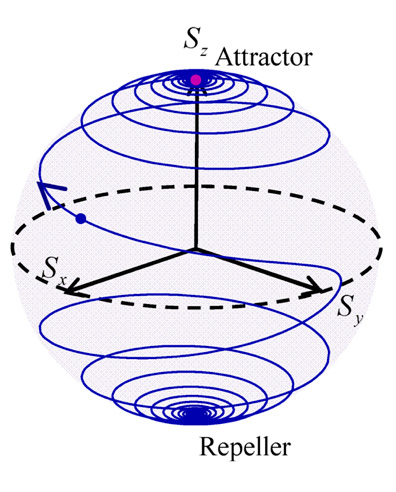SEMINAR 2024
Spontaneous breaking of time-reversal symmetry and time-crystal states in chiral atomic systems
| Speaker | Mauro Antezza, University of Montpellier and Institut Universitaire de France, France |
| Date/Time | Thursday, 11 Jul, 11AM |
| Location | Conference room: S11-02-07 |
| Host | Prof Wang Jian-Sheng |
Abstract
We present a theoretical study of the interaction between an atom characterized by a degenerate ground state and a reciprocal environment, such as a semiconductor nanoparticle, without the presence of external bias. Our analysis reveals that the combined influence of the electron’s intrinsic spin magnetic moment on the environment and the chiral atomic dipolar transitions may lead to either the spontaneous breaking of time-reversal symmetry or the emergence of time-crystal-like states with remarkably long relaxation times. The different behavior is ruled by the handedness of the precession motion of the atom’s spin vector, which is induced by virtual chiral-dipolar transitions. Specifically, when the relative orientation of the precession angular velocity and the electron spin vector is as in a spinning top, the system manifests time-crystal-like states. Conversely, with the opposite relative orientation, the system experiences spontaneous symmetry breaking of time reversal symmetry. Our findings introduce a mechanism for the spontaneous breaking of time-reversal symmetry in atomic systems, and unveil an exciting opportunity to engineer a nonreciprocal response at the nanoscale, exclusively driven by the quantum vacuum fluctuations.

Physical Review B 108, 235154 (2023)
Biography
Mauro Antezza is Full Professor of Theoretical Physics at University of Montpellier, Fellow of the Institut Universitaire de France and head of the research group “Theory of light-matter and quantum phenomena” at the Laboratoire Charles Coulomb. His research interests are :
- quantum systems out of equilibrium
- open quantum systems
- Casimir-Lifshitz interaction
- radiation-matter interaction
- disordered and complex systems
- radiative heat transfer
- light harvesting
- quantum thermodynamics
- quantum and classical nanophotonics
- photonic topological insulators
- emergent 2D/3D materials
- ultracold quantum gases
- time crystals

